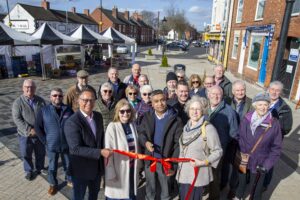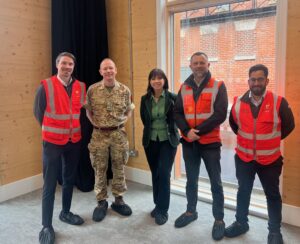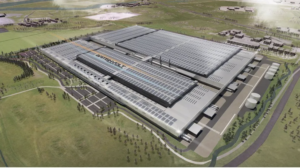Project aims to open up brownfield sites to deprived communities
 A historian has partnered with a local not-for-profit youth organisation on a new research project which aims to help open up brownfield sites in the UK’s most deprived urban communities.
A historian has partnered with a local not-for-profit youth organisation on a new research project which aims to help open up brownfield sites in the UK’s most deprived urban communities.
Dr Ben Anderson from the University of Keele’s School of Humanities has been working with Urban Wilderness on a project funded by the Keele Institute for Social Inclusion. The project aims to increase social and environmental justice by opening up brownfield sites – land which would otherwise be disused – for use by communities.
The current pandemic has exposed the hidden inequalities of access to green space in inner cities, which affects those most vulnerable to the virus. Young people have faced particular challenges in accessing green space, with early research suggesting that teenagers feel under particular surveillance from adults, and are consequently reluctant to leave their home environments – which, in many urban places, lack gardens.
This project has brought together community projects from across the North West through a virtual event to discuss how the social value of these sites could be expressed, communicated, and improved for young people.
During the event they discussed how the community management of these sites could be improved in ways that include the often marginal communities involved, and in particular legitimised young people’s presence.
The Urban Commons Charter has been created as a result of the collaboration, and sets out the guiding principles that communities should adopt to successfully manage the use of the brownfield land. The charter represents an important first step in research that has the potential to shift attitudes and perspectives to brownfield sites as places of social, as well as environmental importance.
Dr Anderson, lecturer in modern history said: ‘Working with Urban Wilderness has led to an exciting opportunity for a new social compact on access to urban green spaces. We have long known about the environmental importance of brownfield sites; only recently have we begun to realise their social potential as well, and this project seeks to release that potential, for the benefit of some of the country’s poorest communities.’












